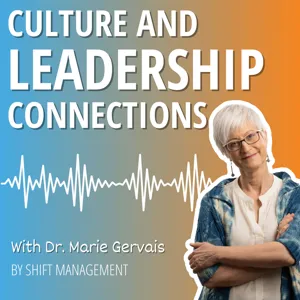ABL DUOs: Delmarie Griffin and Rodney Strong

This podcast is about two legal warriors who have spent the last 30 years protecting the concepts of equity in the courts, through analysis and by helping municipalities create policies that withstand assault.
Rodney Strong and Delmarie Griffin are also a married couple who have come together from very different backgrounds.
Delmarie was raised in Columbus, GA and attended an HBCU as an undergraduate and the University of Georgia for her law and business degrees.
Rodney Strong was raised in Memphis, TN by parents who were active in the NAACP. One of his strongest memories is being a 5-year-old child who couldn't go to McDonald's because it was segregated.
Both came of age as Jim Crow racial separation ended and the struggle to merge ideals in the newly integrated workplaces began. Rodney Strong was mentored by people who were looked at as giants in his home state and Atlanta, GA. He gained a reputation for combatting, and winning against, court rulings that threatened the concepts of DEI (diversity, equity and inclusion). His life's work started when former Mayor Andrew Young hired him to be the compliance officer for the City of Atlanta. It continues through his firm, Griffin & Strong PC.
Delmarie worked as a corporate attorney for Hughes Aircraft for ten years. She handled compliance and HR in government contracting with high clearance levels.
The unexpected factor in this couple's story is their London School of Economics trained, Ph.D.-holding daughter. She received a top-rated education and brought her skills back to the family firm as its director of operations.
When this interview took place, one of the most unsettling court cases on affirmative action in higher education in recent history had not taken place. But Rodney and Delmarie knew it was on the horizon and were already prepared to tackle its ramifications. They also showcase that the skills and experience they bring to clients are often stronger than those offered by majority-owned firms that dabble in Griffin & Strong's chosen legal fields of compliance and equity.
This podcast is both a profile and a story about family. You will learn more than just what Delmarie Griffin, Dr. Imani Tucker and Rodney Strong do; you'll learn a great deal about who they are.











![Study Abroad Programs. Take College Courses in Another Country. Your Financial Aid Can Be Used to Pay for It [University of North Carolina at Chapel Hill]](https://www.podcastworld.io/podcast-images/the-college-metropolis-podcast-college-admissions-talk-for-h-q7sdwzod.webp)




